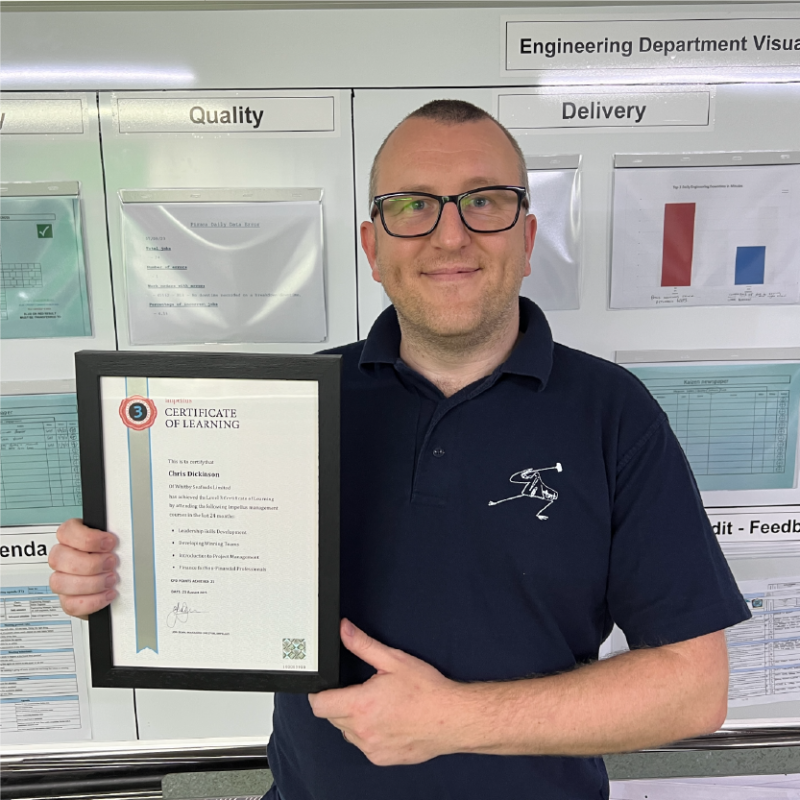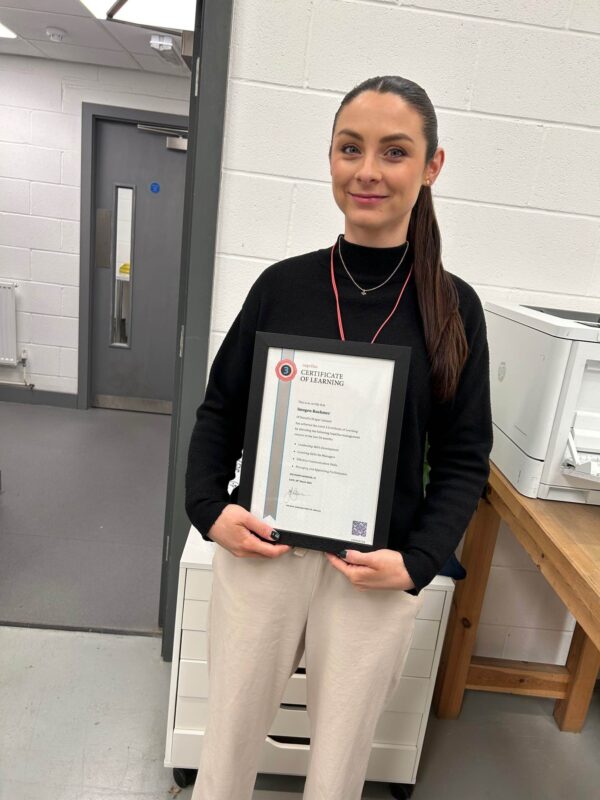We help to dispel the myths around Management Apprenticeships
Apprenticeships aren’t what you remember them to be.
An apprenticeship is essentially a ‘wrapper’ for a specific training programme. Anyone can commence an apprenticeship at any time in their life – irrespective of their age, background or career level. There are apprenticeships now available for senior board members with many years of previous management experience.
Under the Apprenticeship Levy which came into effect in April 2017, many organisations are considering options – including management apprenticeships – for learning and development initiatives for their existing workforce.
ILM Research
Recent research from the ILM¹ on misconceptions around management apprenticeships reveals concerning statistics:
- Only 37% of UK businesses are very confident about the long-term supply of leaders and managers in their organisation, and;
- 70% of those surveyed run formal leadership training programmes, aimed at mid-level employees, to help fill middle or senior management roles.
- However, 58% of respondents feel middle and senior managers would be unwilling to be seen as an ‘apprentice’, and;
- Only 25% would consider using apprenticeships to improve the skills of middle managers and just 21% to develop senior managers.
Jake Tween, head of apprenticeships at ILM said: “Deeply ingrained associations with trade, low wages…. mean that apprenticeships have long been dismissed… and it’s time to put an end to it. We must work collectively – Government, employers and providers – if we are to get to a place where these prejudices are considered outdated.”
Top 10 Questions on Management Apprenticeships
We dispel some of the myths and misconceptions around management apprenticeships by picking the questions we have most frequently been asked since being appointed to the Register of Apprenticeship Training Providers:
Q1. Is it right that leading management/business schools and professional management bodies are now offering apprenticeships?
A. Yes, the Open University, Cranfield School of Management and Ashridge Business School, for example, all offer higher and degree apprenticeships in leadership and management. Two of the most influential UK bodies, the Chartered Management Institute (CMI) and ILM, also offer management apprenticeships from Level 3 up to Senior Leader Master Degree apprenticeships.
Q2. Aren’t apprenticeships for manual workers or tradespeople rather than managers?
A. In the past, apprenticeships were for low wage earners who wanted to learn a ‘trade’. Now apprenticeships are available across all areas of an organisation and are an excellent way to develop the leadership and management skills within a business.
Q3. Can my managers and senior managers study an apprenticeship?
A. Yes, the best management apprenticeship programmes combine on-the-job training with formal learning and coaching to help to embed the learning. The Government has also approved a fund allocated for MBAs and degree apprenticeships.
Q4. As an employer, I’m not confident about the long-term supply of leaders and managers in our organisation. I’d like to use the Apprenticeship Levy to fund a formal leadership development programme, but think my managers will feel that an apprenticeship denotes that they need additional support and are starting out in management – how do I overcome this?
A. This perception of apprenticeships harks back to traditional apprenticeships. It is not the case nowadays. The best apprenticeship training providers will work closely with an employer to deliver a programme that meets the organisation’s requirements and includes ‘off-the-job’ training and end point assessments to meet its objectives.
Encourage them to properly review the content and quality of the training programme instead.
Q5. I have a technician who has shown interest in studying a Level 3 Management Apprenticeship. Is this possible?
A. Yes, if your technician has, or aspires to have, people reporting to them and the apprenticeship would help them in their current role and to develop their career in the future, it would be suitable.
Your senior management, HR department and the individual must be bought-in to the benefits of an apprenticeship and committed to the work involved. In addition, it will involve new HR administrative processes, if you have not run an apprenticeship programme before.
Q6. I can envisage that the ‘20% off-the-job’ training rule will work for new starters but not for current employees/managers, as they cannot be away from office for days on end?
A. Apprentices don’t have to physically be away from the office for 20% of the time. The ‘off-the-job’ training time can be used for job shadowing, to promote active learning within teams and to study for their qualification, as well as for face-to-face training. These are all key management responsibilities in any case.
Importantly, apprentices will be putting the skills they are learning into their roles, so the organisation will benefit from their training straight away.
Q7. I’m unsure on the levels of management apprenticeships – can you clarify?
A. Yes, a Level 3 Management Apprenticeship can be appropriate for a line manager or supervisor. A Level 5 is for operational, departmental or regional managers and a Level 7 apprenticeship covers a Master’s level qualification for senior leaders.
Q8. What’s the time commitment required for a management apprenticeship?
A. A management apprenticeship demands significant commitment from the employer organisation and the individual themselves. The programme must be a minimum of 12 months and usually lasts 18-24 months and will involve working in training sessions and on assignments, projects and assessments.
Q9. My organisation is not large enough to pay the Apprenticeship Levy, but I would like to offer my managers a Level 3 Management Apprenticeship. Can I get funding for this?
A. Yes, as an employer, you would have to pay 10% of the cost of the training and the Government will pay the remaining 90% up to the maximum funding bands. It is known as ‘co-investment’.
Q10. If we commit to a management apprenticeship, how can we ensure it will work and deliver on our investment?
A. It will require buy-in from all areas of the business and senior management will need to reinforce a culture of learning in your workplace. Time will be needed to make it work and it will require changes within your organisation to be effective.
That said, an apprenticeship can open doors for new learning cultures and development programmes demonstrating the vital importance of L&D initiatives. Before the programme starts, set qualitative and quantitative objectives. Apply the same measures for demonstrating ROI that you would to other learning and development programmes – assess employee retention and satisfaction rates, growth percentage and performance output, etc.
You may consider doing a pilot scheme first to test the waters and to help the entire organisation understand that apprenticeships are a long-term investment like any learning and development activity.
Conclusion
We close with a further comment from Jake Tween, ILM: “At a time when businesses are being encouraged to take up apprenticeship programmes and use them to plug their most critical skills gaps, it is important that they are seen as what they really are: a highly effective way for employees at every level to gain the essential skills that businesses so desperately need, as well as a quality route for individuals to progress.”
¹ ILM surveyed 1,000 UK HR decision makers. The research was conducted by Censuswide in February 2018.
Impellus was recently appointed to the Register of Apprenticeship Training Providers – read more about the ILM Level 3 Diploma which can be funded by the Apprenticeship Levy here.























